Interdisciplinary Workshop “Navigating Time and Wellbeing in the Digital Age” - A post-event summary
- ckschoetensack
- Jul 31, 2025
- 6 min read
On 8 May 2025, the University of Fribourg (Switzerland) hosted the interdisciplinary workshop “Navigating Time and Wellbeing in the Digital Age”, organized by the TIMED research consortium (Time Experience in Europe’s Digital Age).

The event brought together leading scholars from multiple backgrounds to explore how digitalization is reshaping our experience of time and its implications for individual and societal wellbeing. The workshop featured a full day of presentations and discussions from 8 invited speakers who shared their research and perspectives on key themes related to time perception, wellbeing, digital technologies, and policy implementation.
An insightful account of the workshop, including reflections by TIMED principal investigator Prof Chantal Martin-Soelch and a summary of further research conducted by the TIMED team is now available in the online magazine Alma & Georges here.
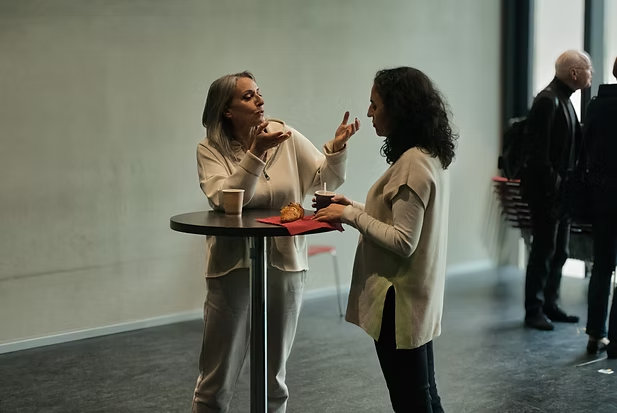
Funding and organization
Funded by CHANSE, the event was organized by Professor of Clinical and Health Psychology Chantal Martin-Soelch, researchers Sébastien Chappuis, Dr Karl Daher and administrative officer Chantal Rodríguez, based at the hosting institution University of Fribourg. The FAF (Fonds d’action Facultaire), Faculty of Humanities and Social Sciences and the Centenary Research Funds at the University of Fribourg supported the scientific day.
Snapshots of our event
Chantal Martin-Soelch (University of Fribourg): “Interdisciplinary workshop on Navigating Time and Wellbeing in the Digital Age”

The Swiss Principal Investigator of the TIMED project, Prof Chantal Martin-Soelch extended a warm welcome to the invited speakers and workshop participants with a short introduction to the University of Fribourg, the I-reach Lab and the TIMED project.
Ruth Ogden (Liverpool John Moores University): “Time experience in Europe’s digital age”
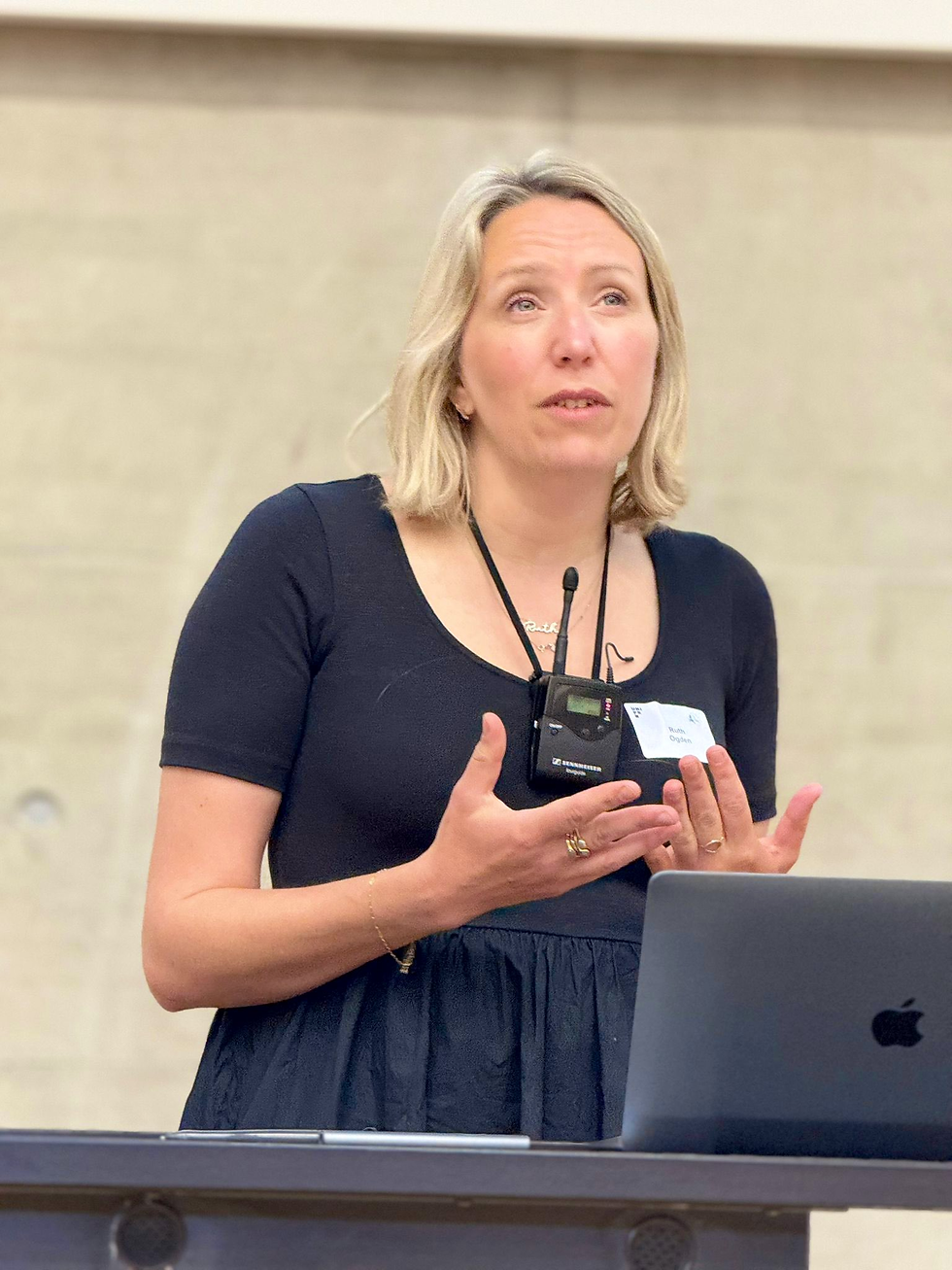
An informative overview of the quantitative and qualitative research conducted as part of the TIMED project was provided by the TIMED lead investigator Prof Ruth Ogden, who presented new findings showing that digital technologies are often perceived as time stealers and are associated with less time autonomy as well as feelings of guilt and regret. Given such challenges, Prof Ogden described the need for policy-led interventions to preserve people’s access to time in the digital era, interventions by media providers to increase “quality” of time spent on digital devices and societal level discussions about whether we should feel guilty about digital technology use.
Devina Sarwatay (St George’s, University of London): “Negotiating time for online participation: Young people's socialisation and wellbeing on social media”
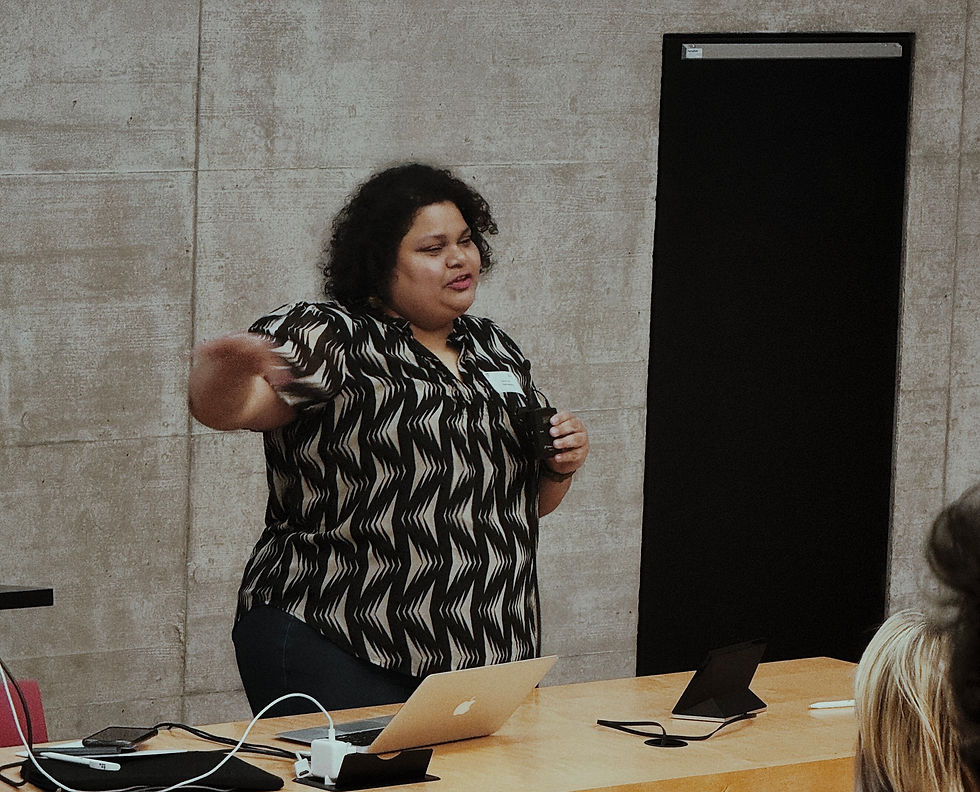
An insightful talk about the use and experience of social media among young people in India was delivered by Dr Devina Sarwatay, Presidential Fellow. The presentation highlighted how the navigation of the online world by young people was shaped by parental restrictions, family income and gendered norms about online behavior. Dr Devina Sarwatay exemplified these dynamics by presenting qualitative evidence of young people being discouraged from specific types of social media use by parents or facing lower access to technology due to their socioeconomic situation. The researcher also highlighted that girls tended to be confronted with parental expectations to protect their privacy online and reduce public content.
Emma Mills (Birchwood Community High School): “Social Media and the online world: What is the real cost for young people?”

Emma Mills, headteacher at Birchwood Community High School shared her extensive experience of digital media use and its impact on children’s behavior, attention and mental health. Her talk drew attention to the replacement of non-digital activities such as non-digital play or social engagement among children by digital technology use and pointed to the importance of facilitating a re-connection with such activities. She vividly illustrated that digital media use among children can be less problematic as children missing out on non-digital experiences.
Marta Pucilowska-Schielman (Digital Citizenship Institute): “Digital hygiene as a key element of maintaining health in the information society”
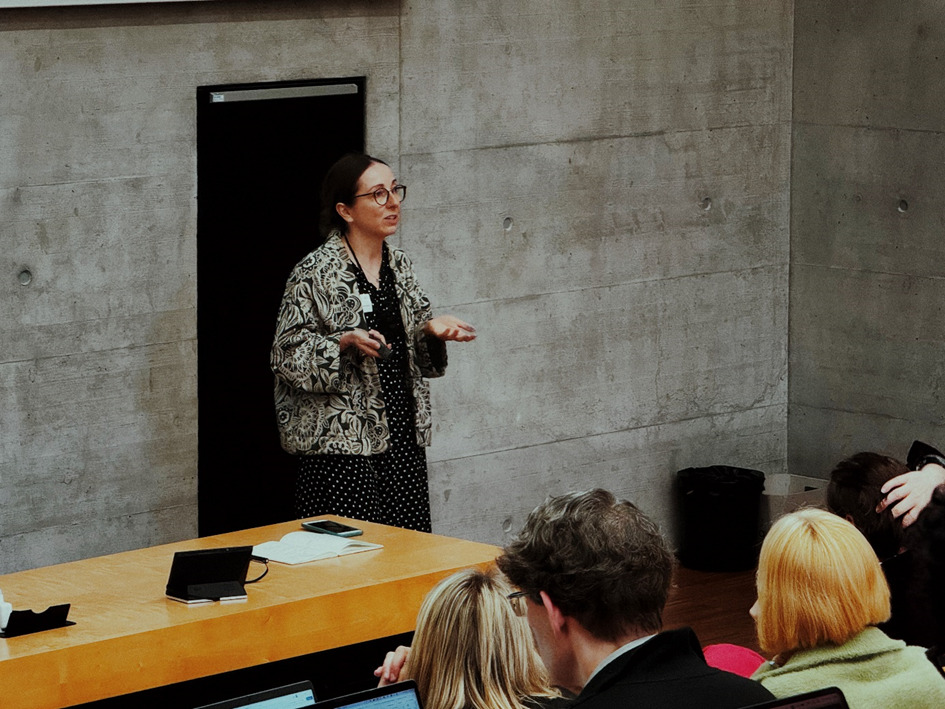
The challenge of protecting young people’s wellbeing in the face of digitalization was also explored by Marta Pucilowska-Schielman who introduced the concept of digital hygiene (health-protective behaviors related to the use of digital technology). The Vice-President of the Digital Citizenship Institut explained how healthy device use among young people did not have to mean taking positive digital experiences away but implied adding to young people’s wellbeing, which required parents, teachers and family members to model health-protective behaviors.
Mariek Vanden Abeele (Ghent University): “Disconnect to Reconnect”
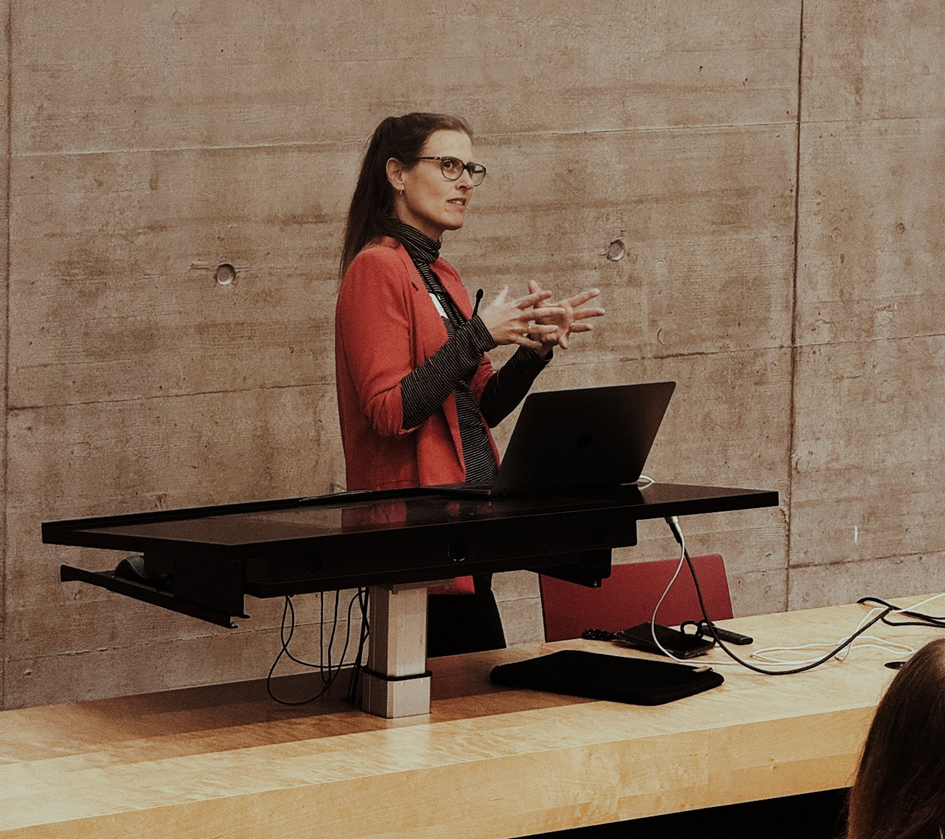
Prof Mariek Vanden Abeele, Associate Professor in Digital Culture critically explored what it means to live a good life in a digital society in a compelling presentation. She referred to media representing digital detoxes as the solution to problems thought to be caused by digital technologies and examined whether and when digital disconnection was challenging and helpful. She further questioned whether our ability to disconnect was currently supported through an effective “right to disconnect” and how self-control could impact the value of disconnection.
Sylvie Droit-Volet (Université Clermont Auvergne): “The different judgments of the passage of time: theory and results”
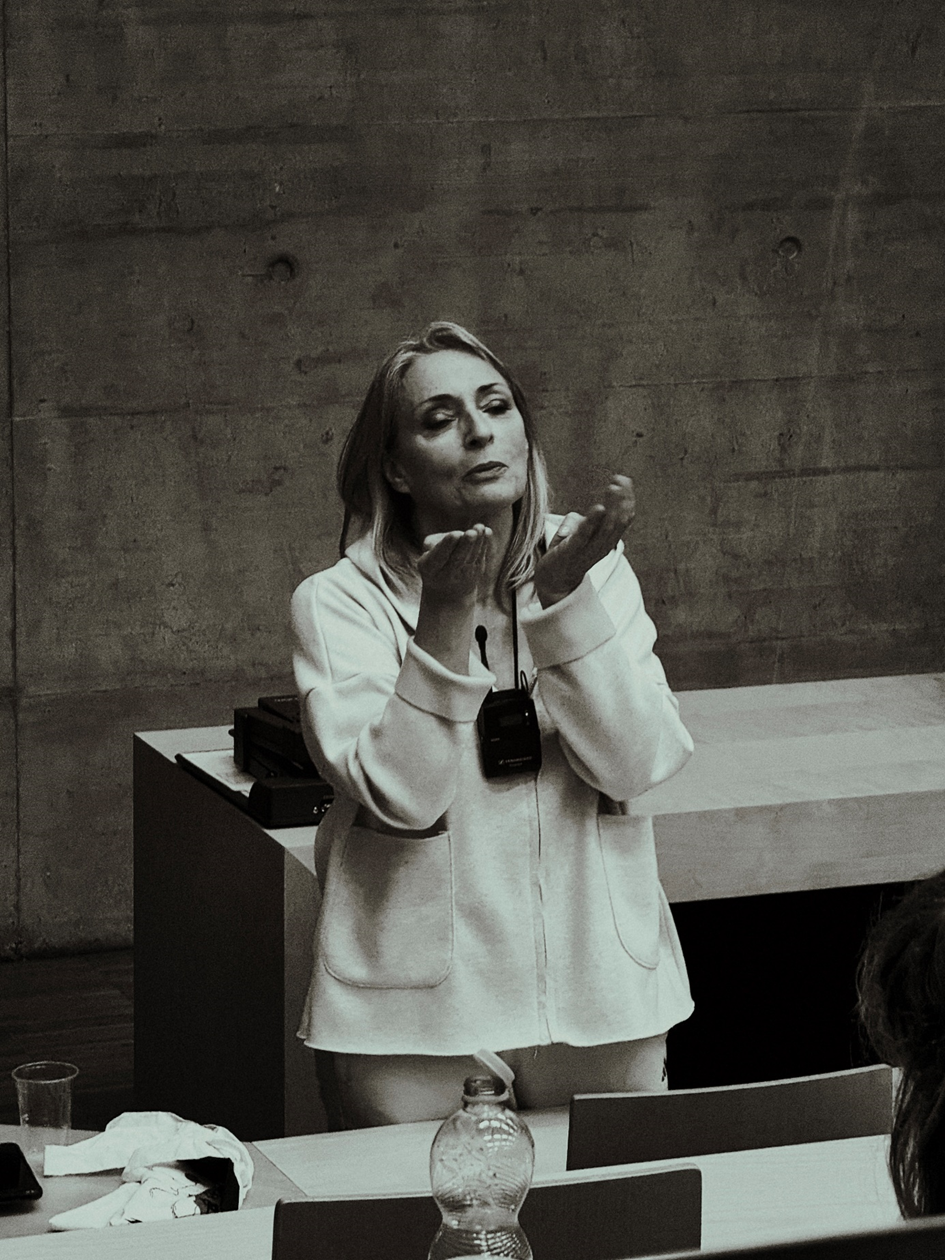
An important aspect of time perception that shapes wellbeing and is likely to influence digital experiences was explored by Prof Sylvie Droit-Volet, Professor in Psychology who provided an excellent overview of research that showcased the multitude of factors that impact how the passage of time is judged. Prof Droit-Volet highlighted, for example, that the perceived speed of time can be affected by our internal states (e.g. emotions including happiness or sadness), context (e.g. the difficulty of a task, task duration etc.) and the effects of context on our internal states.
Diana Affi-Miks (Google Maps Platform): “Unlocking more time with AI-powered Google products”

Diana Affi-Miks, Senior Technical Solutions Engineer at Google Maps Platform revealed some of the ways in which digital technologies can help us gain more time. Ranging from the use of AI to optimize learning or voice-controlled mobile searches to blocking time in online calendars, the digital tools presented exemplified various ways of simplifying everyday tasks, saving time and increasing efficiency.
Dietrich Henckel (Technische Universität Berlin): “Time Policy for Wellbeing”

Prof Dietrich Henckel, Head of the Department of Urban and Regional Economics at the Institute of Urban and Regional Planning (ISR) introduced listeners to the ways time structures impact our quality of life and outlined policy solutions to support better temporal practices. Prof Henckel exemplified that, in addition to explicit time policies (i.e. policies designed to regulate time, such as a work-life balance policy), implicit time policies (i.e. those not aimed at temporal regulation but with temporal “side effects”) can have a significant impact on our work and daily life. He pointed to the need for gender-equal time policies aligned with our chronobiology.
Peter Whitehead (Public First): “How to Make Policy and Influence People”
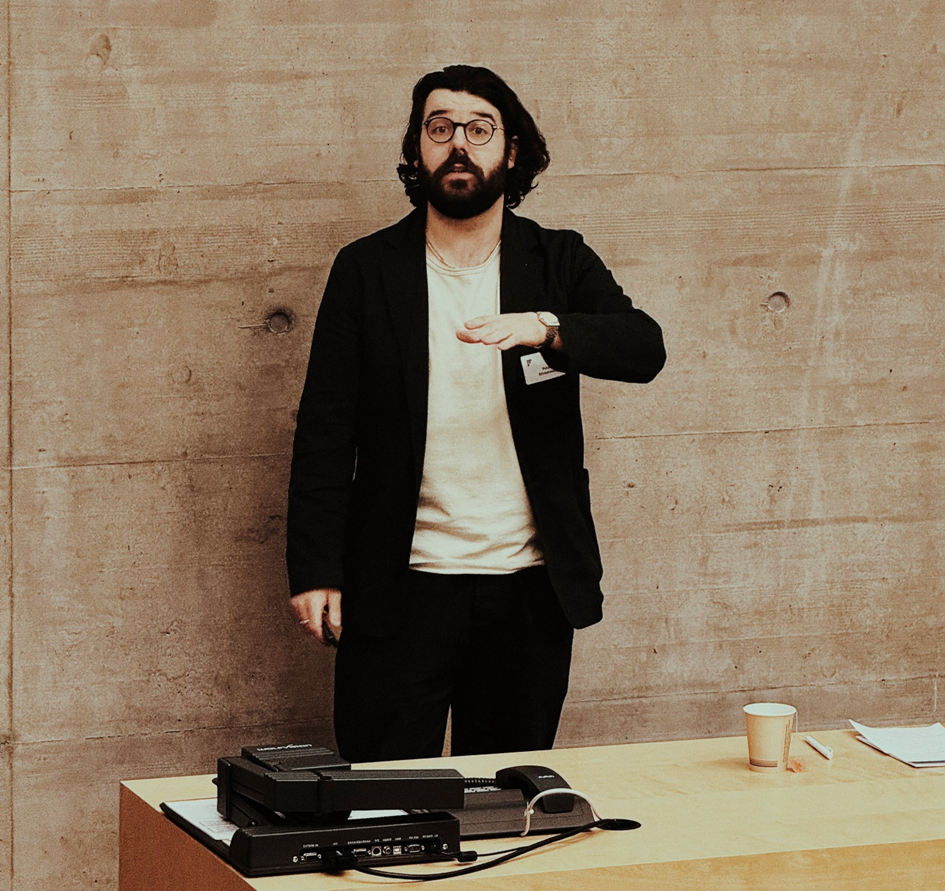
In an impactful talk, Senior Policy Manager Peter Whitehead presented practical and accessible advice on how to influence policy. He encouraged researchers to clearly identify and reflect on what they wished to change through policy, what would need to happen to bring about this change, who could assist with it and what these individuals would like to hear. Effectively communicating specific ways of implementing a desired change to politicians was recommended.
Panel discussion
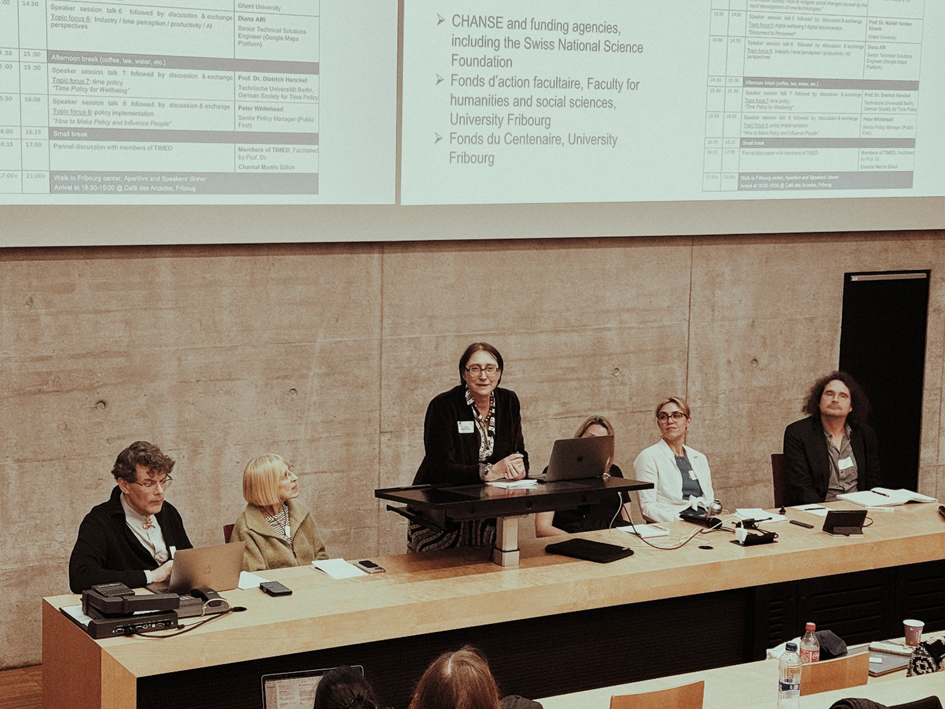
The day concluded with a panel discussion in which TIMED consortium members reflected on key insights from the talks and outlined future research directions. Prof Ruth Ogden, Dr Marc Wittmann, Dr Vanda Černohorská, Prof Chantal Martin-Soelch, Prof Núria Codina and Dr José Vicente Pestana drew attention to the outstanding challenges to address in the pursuit of individual and collective wellbeing in the digital era. The panellists agreed that current solutions to digital technology-related problems often focus on changes in individual digital behavior. Yet, such changes are difficult to implement for individuals affected by time poverty, societal and gendered norms of behavior and negative messaging around digital technologies in the media without clear information on how to live well with rather than without digital technologies. Facilitating “good digital time” therefore is likely to require societal level interventions, such as changes in time policy, communication and attitudes towards digital technology use.

Impact
The event fostered meaningful interdisciplinary dialogue and collaboration, advancing TIMED’s mission to explore how digitalization shapes time perception and wellbeing. By bringing together diverse academic and professional perspectives, it marked a key step toward developing a shared framework for addressing digital-era challenges.
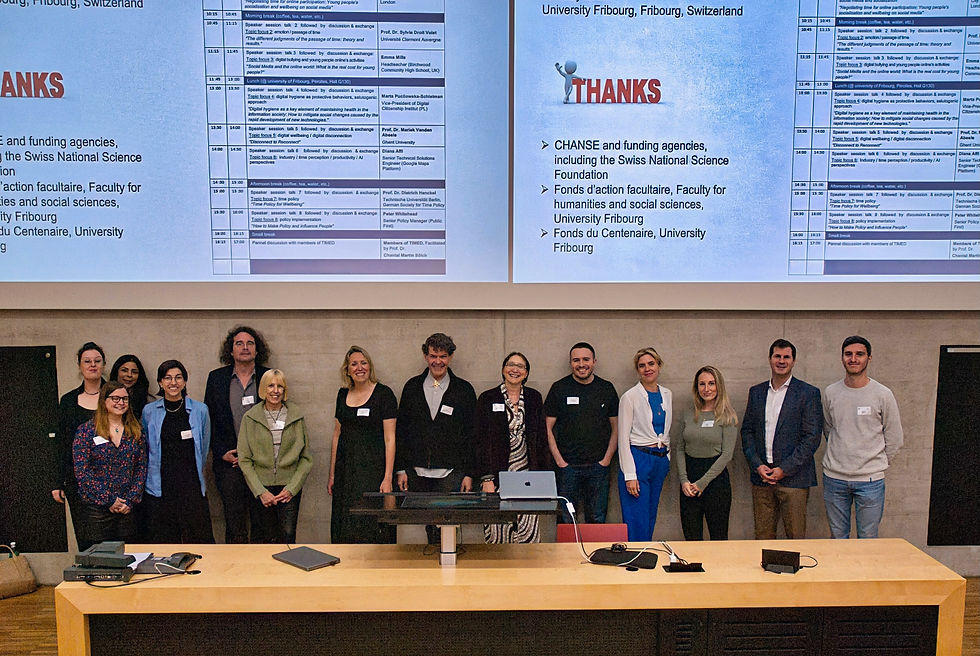
We extend our heartfelt thanks to all invited speakers and participants for making this workshop a successful and inspiring event!
Stay tuned for upcoming TIMED activities and publications!


Comments